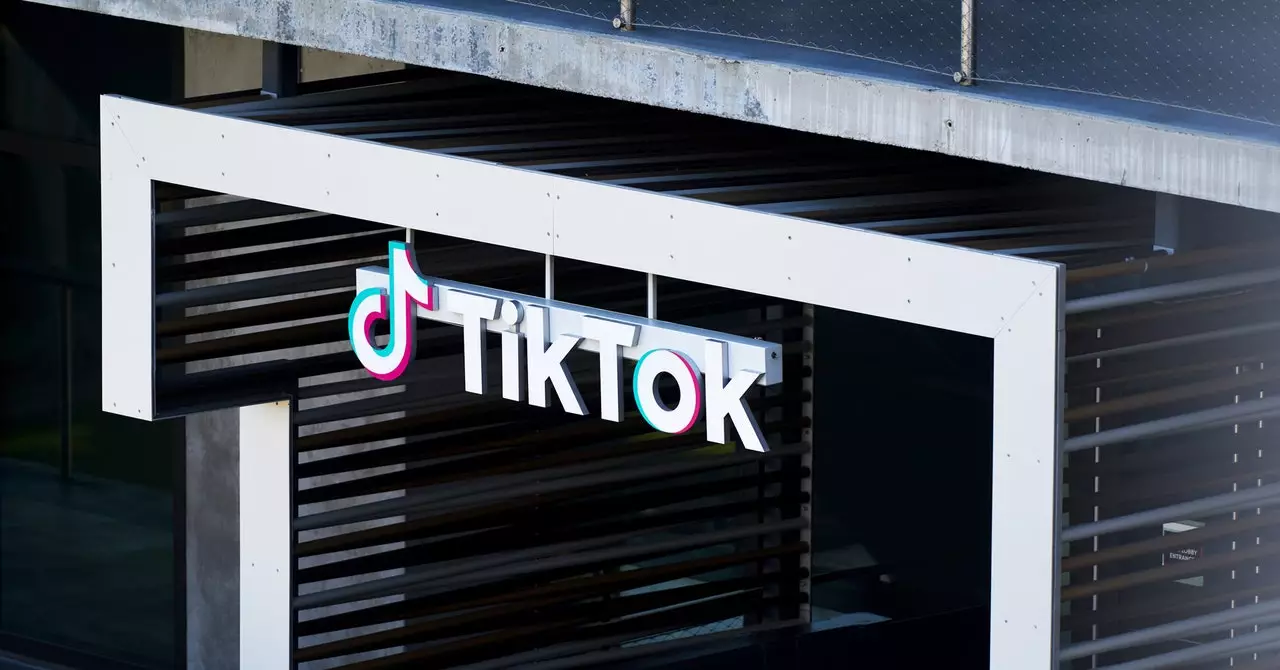TikTok, a platform that has rapidly risen to prominence in the social media landscape, finds itself at the center of a political storm in the United States. The ongoing debates regarding its future have left many observers speculating about the impact of impending elections on the app’s fate. Yet, the sentiments of TikTok employees tell a different story—one characterized by disengagement and indifference amidst the swirling political discourse.
Surprisingly, TikTok employees appear largely detached from the tumultuous political atmosphere. Conversations with several anonymous employees, including a product manager based in San Jose, reveal a prevailing sense of apathy toward the possibility of a ban or ownership changes. Rather than viewing the impending elections as a potential turning point for the app, many employees continue to approach their work as if business as usual stands unaffected by external pressures.
One product manager noted, “I feel indifferent now.” His perspective illustrates a common refrain among colleagues: there is little they can do as individual contributors, leading to a collective mindset that actively disregards the potential implications of political maneuvers. The abstract nature of politics may create a bubble of indifference within the workforce, as the immediacy of their day-to-day responsibilities takes precedence over external threats.
The contrast between public speculation about TikTok’s future and internal discussions among employees is stark. While headlines may bristle with discussions about the app’s potential demise and the implications of the Protecting Americans from Foreign Adversary Controlled Applications Act (PAFACA), employees report that these discussions are rarely broached within their teams.
Among TikTok’s ranks, these topics seem to engage employees less than they do their international counterparts. Conversations about the political landscape or company strategy in light of PAFACA tend to occur in informal settings or with friends outside of the company. There is notable reluctance to engage in conversations suggesting defeat or the possibility of resignation from the company. This disinterest may stem from a broader trend of employees choosing to compartmentalize their work life from external uncertainties.
As the elections approach, political comments regarding TikTok are becoming increasingly intertwined with broader geopolitical tensions between the United States and China. Current political narratives, amplified by media coverage, often emphasize the connection between the app and national security concerns. Yet, amidst these discussions, the specifics regarding the app’s future under a potential Kamala Harris or Donald Trump administration remain vague.
Kamala Harris has maintained a reserved silence regarding her stance on TikTok, leaving employees uncertain about the direction policies would take if she were to ascend to the presidency. Analysts speculate that she would largely adopt the tech policies of her predecessor, Joe Biden, which include enforcing the strict measures outlined in the PAFACA Act. On the other hand, Donald Trump, who initially took a hardline stance against TikTok, has softened his rhetoric, suggesting support for the app while also engaging in what might be interpreted as political opportunism.
This uncertainty has resulted in a collective ambivalence among employees who find themselves navigating an unpredictable political landscape without a clear understanding of how their professional futures might be affected.
As TikTok employees confront the enigma of their employer’s future amid the US elections, the prevailing indifference appears to be a coping mechanism against uncertainty. With the company’s trajectory at the mercy of political decisions and public sentiment, employees remain focused on their work, largely disengaged from the broader discussions that dominate outside conversations.
This internal disconnection highlights a critical tension in the modern workplace—how political narratives seep into the lives of employees, and how they choose to engage, or not engage, with those narratives. As the elections draw nearer, TikTok’s fate—and the reactions of its workforce—will be a testament to the complex interplay between the world of politics, business, and individual agency in an increasingly volatile environment.


Leave a Reply